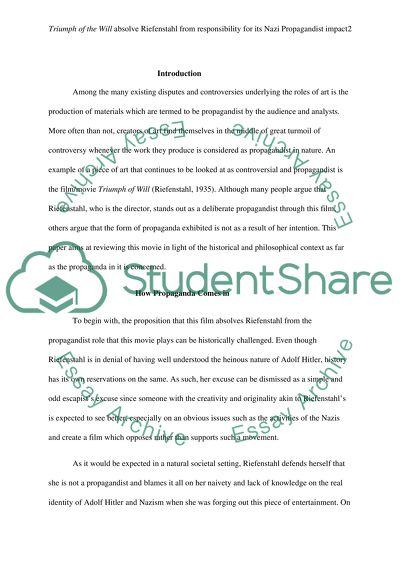Cite this document
(“Triumph of the Will' absolve Leni Riefenstahl from responsibility for Essay”, n.d.)
Triumph of the Will' absolve Leni Riefenstahl from responsibility for Essay. Retrieved from https://studentshare.org/visual-arts-film-studies/1472262-triumph-of-the-willyie-absolve-leni-riefenstahl
Triumph of the Will' absolve Leni Riefenstahl from responsibility for Essay. Retrieved from https://studentshare.org/visual-arts-film-studies/1472262-triumph-of-the-willyie-absolve-leni-riefenstahl
(Triumph of the Will' Absolve Leni Riefenstahl from Responsibility for Essay)
Triumph of the Will' Absolve Leni Riefenstahl from Responsibility for Essay. https://studentshare.org/visual-arts-film-studies/1472262-triumph-of-the-willyie-absolve-leni-riefenstahl.
Triumph of the Will' Absolve Leni Riefenstahl from Responsibility for Essay. https://studentshare.org/visual-arts-film-studies/1472262-triumph-of-the-willyie-absolve-leni-riefenstahl.
“Triumph of the Will' Absolve Leni Riefenstahl from Responsibility for Essay”, n.d. https://studentshare.org/visual-arts-film-studies/1472262-triumph-of-the-willyie-absolve-leni-riefenstahl.


